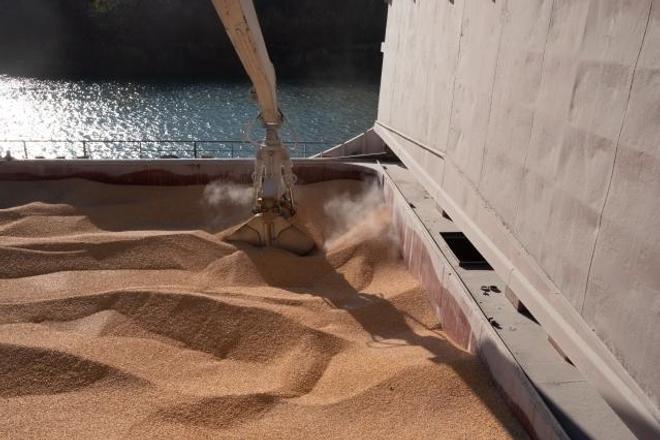In response to Slovakia’s decision to prolong the ban of Ukrainian grain imports, Ukraine has decided to file a lawsuit with the World Trade Organisation against Slovakia, as well as against Poland and Hungary.
“This is a blow to our economy, to the very principles of the European Union, to global food security,” Ukrainian Prime Minister Denys Shmyhal said about the decision of its three neighbours.
Slovakia extended the ban on the imports of four crops from Ukraine - wheat, corn, rapeseed and sunflower seeds - on September 16 following the examples of Hungary and Poland. The Slovak government introduced the ban, which initially included 30 crops, in April to protect Slovak farmers and the domestic market.
“The [extended] ban does not apply to the transport of goods through our territory, thereby expressing solidarity with Ukraine and placing its goods in target markets,” the Slovak Agriculture Ministry went on to say.
Still, Ukraine has called the latest move an ‘unfriendly action’, threatening to ‘impose mirror or reciprocal trade restrictions’. Ukrainian President Volodymyr Zelensky compared the situation to a ‘political theatre’.
“It is alarming to see how some in Europe, some of our friends in Europe, play out solidarity in a political theatre – making a thriller from the grain,” Zelensky said during his speech at the UN General Assembly on September 19.
Slovak President Zuzana Čaputová also attends the meeting. She will give a speech on September 20, which is Wednesday.
EU lifts agricultural food ban
A day prior to the Slovak government’s latest decision, the European Commission had lifted the ban on Ukrainian grain introduced in June of this year. It said that the market distortions in the EU member states bordering Ukraine, including Slovakia, have disappeared.
“The Commission will refrain from imposing any restrictions as long as the effective measures by Ukraine are in place and fully working,” said the Commission.
These measures should include control and verification measures for the exports of four agricultural products. The Ukrainian government called it a ‘compromise’.
“We will provide the EU and our neighbours with customs data on the export of certain goods, and collect data on the final destination of shipments in the electronic queue system,” said the Ukrainian PM.
Although the Slovak government extended the ban last week, it has said that it is open to lifting it as soon as a common EU solution to the problem is found.
“Slovakia will not lift the ban unless the system of guarantees from Ukraine is evaluated and there are guarantees that imports are under control,” acting Slovak Agriculture Minister Jozef Bíreš said on September 18.
For now, the ban remains in place until the end of December.
On September 19, the Slovak Agriculture Ministry announced that thousands of wheat growers in Slovakia, who have suffered losses due to increased imports of wheat from Ukraine, will receive extra cash of more than €15 million from the EU and the government by the end of this year.
Slovakia not scared of lawsuit
Last week, acting Slovak PM Ľudovít Ódor held an online meeting with Shmyhal to discuss the Ukrainian exports of agricultural products and cooperation in the defence and energy sectors.
Yesterday, Bíreš admitted that the mention of a lawsuit surprised him.
Regardless, the minister said confidently, “We can present our reasons and concerns to the WTO.”



 Slovakia extended the ban on the imports of four crops from Ukraine on September 16, 2023. (source: European Commission)
Slovakia extended the ban on the imports of four crops from Ukraine on September 16, 2023. (source: European Commission)